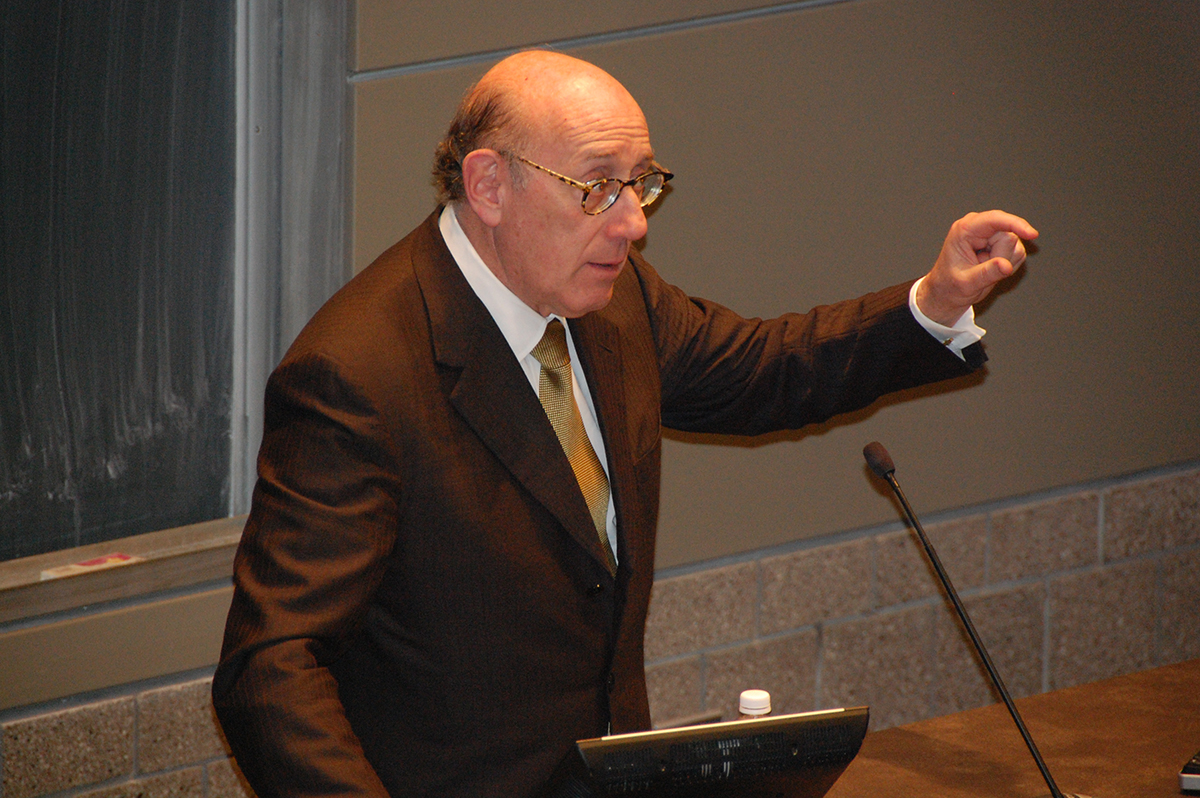'Emotional' work toughest in compensating victims
By David Ticzon

During crises, Kenneth R. Feinberg is someone to whom business leaders, government leaders and even U.S. presidents turn. He delivered the 2016 Milton Konvitz Memorial Lecture, “Unconventional Responses to Unique Catastrophes: Tailoring the Law to Meet the Challenges,” April 25 at the ILR School.
A Harvard Law School professor, Feinberg administered compensation for deaths and injuries to victims’ families and survivors of 9/11, the Boston Marathon bombings and other tragedies.
The emotional portion of his work is the hardest part, Feinberg said.
“It is tough, it is challenging, but the common denominator in all of these programs … is the emotion – the fact that you deal with real people that have been clobbered by life’s unfairness.”
Currently, Feinberg is administering claims by consumers impacted by the Volkswagen diesel emissions scandal.
Reflecting on the 9/11 Fund, Feinberg said it accomplished exactly what Congress and the American people wanted.
“The average reward for a family that lost a loved one at the World Trade Center, on the airplanes and in the Pentagon, was a little over $2 million tax free. Ninety-seven percent of all families that lost a loved one on 9/11 voluntarily came into the fund,” said Feinberg, who distributed about $7.1 billion in public funds to 9/11 families and survivors.
However, Feinberg cautioned against using public money to help victims in the future.
“Bad things happen to very good people every day in this country and there is no 9/11 fund,” Feinberg said. “I did not see a 9/11 fund for Katrina … I did not see a 9/11 fund after earthquakes, tornados and floods. I defend the 9/11 fund from the perspective of the American people. The American people wanted this; it was an important patriotic thing to do.”
“For the Boston Marathon, we distributed … $61 million, all private, donated money – very different,” Feinberg said. “After the marathon bombings, if people wanted to send in money from all over the United States to get a charitable deduction and exhibit their support for the victims, that’s America, that’s charity.”
Feinberg said he has learned not to underestimate the charitable impulse of the American people: “I think it goes back to the Puritans, back to colonial New England. I do not think that there is a country on Earth that shows private charity like the way the United States does.”
Feinberg said he was inspired to pursue public service after hearing President John F. Kennedy talk. “President Kennedy told us all that everybody can make a difference. Serving the public interest is a noble calling, government is not a dirty word. I feel some obligation to give back to the country and I have not forgotten those words.”
Concluding his remarks, Feinberg had words of advice for Cornell students in the audience. “My final suggestion for students at a distinguished school like Cornell – ‘masters of the universe,’ you go to Cornell – don’t plan too far ahead,” he said. “Life has a way of throwing curveballs at everybody. Life has a way of altering the best-laid plans. You may think you know what you will doing five years from now, but believe me, you don’t.”
The lecture is named for the late Professor Milton Konvitz, a founding ILR faculty member who taught at Cornell for nearly 30 years and inspired thousands of students with his popular course American Ideals.
David Ticzon ’18 is an intern in the ILR School Communications and Marketing Department.
Media Contact
Get Cornell news delivered right to your inbox.
Subscribe